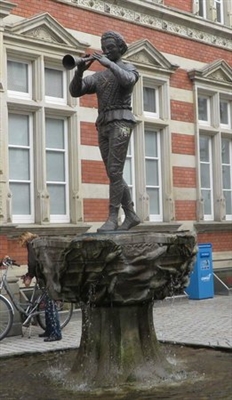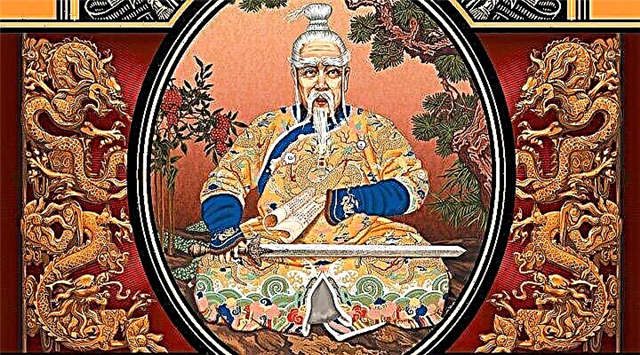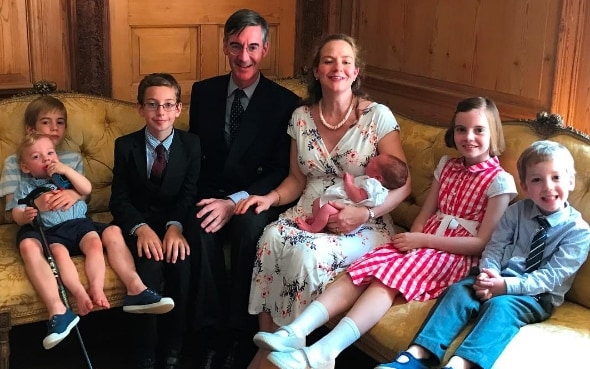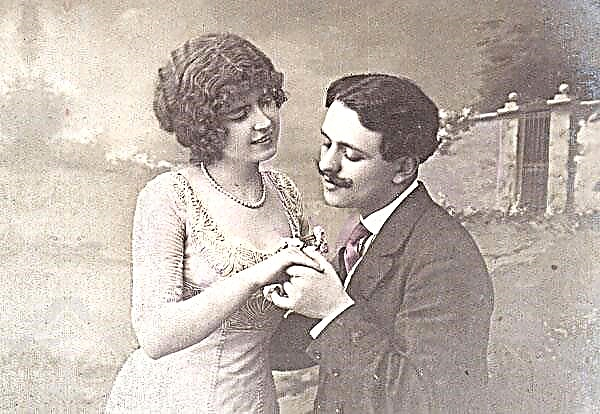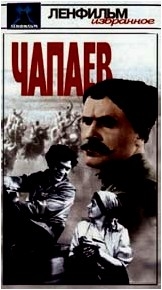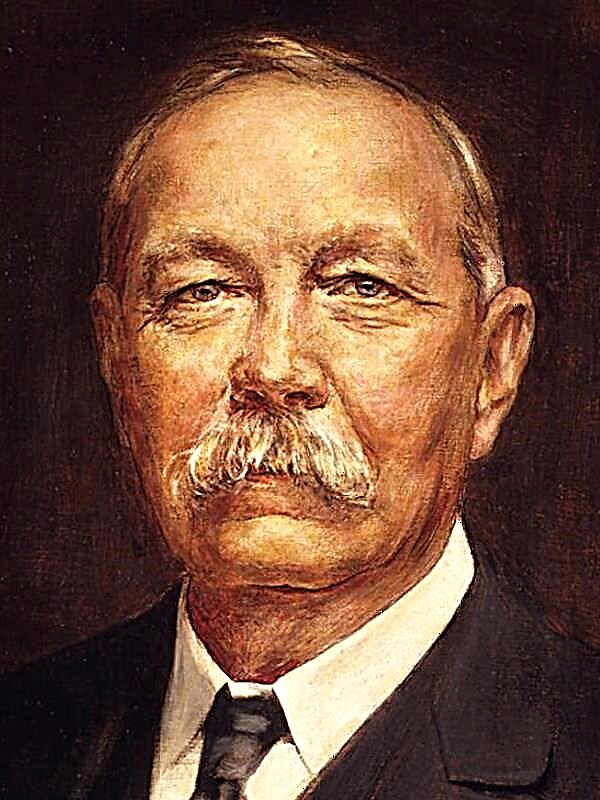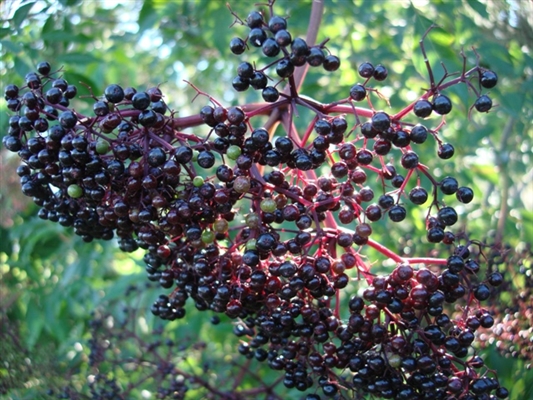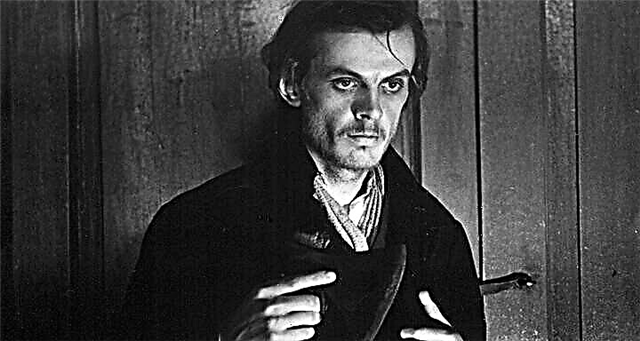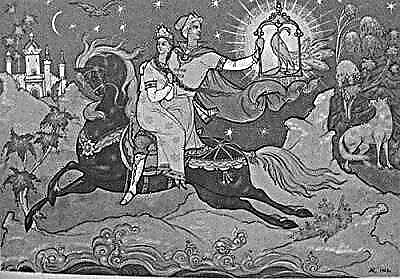My first goose
The correspondent of the newspaper “Red Cavalryman” Lutov (narrator and lyrical hero) finds himself in the ranks of the First Horse Army, led by S. First Horse, fighting the Poles, makes a trip to Western Ukraine and Galicia. Among the Konarmeytsy Lyutov - a stranger. A bespectacled man, an intellectual, a Jew, he feels condescending, mocking, and even hostile attitude on the part of the fighters. “You're from kinderbalzam ... and glasses on the nose. What a lousy one! They send you without asking, and then they cut you for points, ”Savitsky tells him after six, when he comes to him with a paper about the secondment to the headquarters of the division. Here, at the front, horses, passions, blood, tears and death. They are not used to ceremonies and live one day. Laughing at the diploma who arrived, the Cossacks threw out his chest, and Lyutov crawled miserably on the ground, collecting scattered manuscripts. In the end, he, hungry, demands that the hostess feed him. Without waiting for a response, he pushes her in the chest, takes another saber and kills the goose strolling around the yard, and then orders the hostess to fry it. Now the Cossacks no longer taunt him; they invite him to eat with them. Now he is almost like his own, and only his heart, stained with murder, “creaked and flowed” in a dream.
Death of Dolgushov
Even having fought and having seen enough of death, Lyutov is still a “soft-body” intellectual. Once, after a fight, he sees telephone operator Dolgushov sitting near the road. He is mortally wounded and asks to finish him off. “The cartridge must be spent on me,” he says. “The gentry will come running and make a mockery.” Turning off his shirt, Dolgushov shows the wound. His stomach was torn, his intestines crawl to his knees and heartbeats are visible. However, Lyutov is not able to commit murder. He drives off to the side, pointing to Dolgushov, a jumping platoon Afonka Bide. Dolgushov and Afonka talk briefly about something, the wounded man extends his documents to the Cossack, then Afonka shoots Dolgushov in the mouth. He boils with anger at the compassionate Lyutov, so that in the heat of the moment he is ready to shoot him. “Get out! He tells him, turning pale. - I'll kill you! You regret, bespectacled, our brother, like a cat’s mouse ... "
Biography of Pavlichenko, Matvey Rodionych
Lyutov envies the firmness and decisiveness of fighters who, like him, do not feel false, as it seems to him, sentimentality. He wants to be his own. He is trying to understand the "truth" of the Konarmeys, including the "truth" of their cruelty. Here is a red general talking about how he paid off with his former master, Nikitinsky, who, before the revolution, had herded pigs. The barin molested his wife Nastya, and Matvey, becoming the red commander, appeared at his estate to avenge his insult. He doesn’t shoot him right away, even though he asks for it, and in front of the crazy wife of Nikitinsky he tramples for an hour or more and thus, in his words, recognizes life in full. He says: "Shooting from a man ... you can only get rid of: shooting is a pardon for him, but you yourself are a vile lightness, you can’t get to the soul where the person has it and how it is shown."
Salt
The Konarmeets Balmashev in a letter to the newspaper’s editorial office describes the incident that happened to him in a train moving to Berdichev. At one of the stations, the fighters let a woman with a baby, supposedly going on a date with her husband, into their car. However, on the way Balmashev begins to doubt the honesty of this woman, he approaches her, tears off the diaper from the child and discovers under them a “good pudovik of salt”. Balmashev makes a fiery accusatory speech and throws the sackcloth on the go downhill.Seeing her unharmed, he removes the “true screw” from the wall and kills the woman, washing away “this shame from the face of the labor land and the republic”.
Letter
The boy Vasily Kurdyukov writes a letter to his mother asking him to send him something to eat and talks about brothers fighting, like him, for the Reds. One of them, Fyodor, who was captured, was killed by the White Guard dad, the company commander at Denikin, "a guard under the old regime." He cut his son to darkness, "saying - the skin, the red dog, the son of a bitch and miscellaneous", "until his brother Fedor Timofeyich ended." And after some time, dad himself, trying to hide by repainting his beard, falls into the hands of another son, Stepan, and he, having sent brother Vasya out of the yard, in turn finishes dad.
Sling
The young Kuban Prischepa, who fled from the whites, killed their parents in revenge. The property was plundered by neighbors. When the whites were driven out, Prishchepa returns to his native village. He takes the cart and goes home to collect his gramophones, jugs for kvass and towels embroidered by his mother. In those huts where he finds things of his mother or father, Prishchepa leaves pinned old women, dogs hanging over a well, icons crap with droppings. Having arranged the things he had gathered in his places, he locked himself in his father's house and for two days he drinks, cries, sings and cuts down tables with a saber. On the third night, a flame engages in his hut. Sliver takes the cow out of the stall and kills it. Then he jumps on his horse, throws a strand of his hair into the fire and disappears.
Squadron Trunov
Squadron Trunov is looking for officers among the captured Poles. He pulls an officer cap out of a pile of clothes deliberately thrown by the Poles and puts it on the head of a captive old man who claims to be not an officer. The cap is just right for him, and Trunov stabs the prisoner. Right there, a horse-marauder Andryushka Vosmiletov gets close to a dying man and pulls off his pants. Grabbing two more uniforms, he goes to the train, but the indignant Trunov orders him to leave the junk, shoots at Andryushka, but misses. A little later, he, along with the Vosmiletov, enters the battle with American airplanes, trying to bring them down from the machine gun, and both die in this battle.
The story of one horse
Passion rules in the artistic world of Babel. For the Konarmeysky "the horse is his friend ... The horse is his father ...". Having started, Savitsky took the first white stallion from the commander of the first squadron, and since then Khlebnikov has been eager for revenge, waiting in the wings. When Savitsky is removed, he writes to the army headquarters a petition for the return of his horse. Having received a positive resolution, Khlebnikov goes to the disgraced Savitsky and demands to give him a horse, but the former, having started, threatening with a revolver, resolutely refuses. Khlebnikov again seeks justice at the chief of staff, but he drives him away from himself. As a result, Khlebnikov writes a statement expressing his grudge against the Communist Party, which cannot return "his hard-earned money," and after a week is demobilized as a disabled person with six injuries.
Afonka Bida
When Afonka Bida kills her beloved horse, the frustrated Konarmets disappears for a long time, and only the formidable murmur in the villages indicates the evil and predatory trace of the robbery of Afonka, who is getting her horse. Only when the division enters Berestechko does Afonka finally appear on the tall stallion. Instead of a left eye on his charred face is a monstrous pink swelling. The heat of freemen has not yet cooled in him, and he is destroying everything around him.
Pan Apolek
The icons of the Novograd Church have their own story - "the story of an unheard of war between the powerful body of the Catholic Church, on the one hand, and the careless bogomaz - on the other," a war that lasted three decades. These icons are painted by the holy fool of the artist, pan Apolek, who, through his art, has made ordinary people holy. He, who presented a diploma of the end of the Munich Academy and his paintings on the themes of Holy Scripture (“burning purple mantles, glitter of smaragd fields and flowery covers spread over the plains of Palestine”), was entrusted with the Novograd priest to paint the new church. What is the surprise of eminent citizens invited by the priest when they recognize in the Apostle Paul on the painted walls of the church of the lame christening Yanek, and in Mary Magdalene - the Jewish girl Elka, the daughter of unknown parents and the mother of many sub-children. The artist, invited to the place of Apolek, does not dare to gloss over Elka and the lame Janek.The narrator meets with pan Apolek in the kitchen of the house of the runaway priest, and he offers to make his portrait for fifty marks under the guise of blessed Francis. He also tells him the blasphemous story of the marriage of Jesus and the noble maiden Deborah, from whom his firstborn was born.
Gedali
Lyutov sees old Jews selling at the yellow walls of the ancient synagogue, and sadly recalls Jewish life, now dilapidated by the war, recalls his childhood and grandfather stroking the volume of the Jewish sage Ibn Ezra with his yellow beard. Walking through the market, he sees death - dumb locks on the trays. He enters the antiquity shop of the old Jew Gedali, where he has everything: from gilded shoes and ship ropes to a broken pot and a dead butterfly. Gedali walks, rubbing his white handles, among his treasures and laments the cruelty of the revolution, which robs, shoots and kills. Gedali dreams of "a sweet revolution," of the "International of Good People." The narrator convincingly instructs him that the International "eats with gunpowder ... and season with better blood." But when he asks where to get Jewish cake and a Jewish glass of tea, Gedali lamentedly replies to him that until recently it could have been done in a nearby tavern, but now "they don’t eat there, they cry ...".
Rabbi
Lyutov is sorry for this everyday life swept by a whirlwind of revolution, with great difficulty trying to save himself, he takes part in a Saturday evening meal led by the wise rabbi Motale Bratslavsky, whose disobedient son Ilya “with Spinoza’s face, with Spinoza’s powerful forehead” is also here. Ilya, like the narrator, fights in the Red Army, and soon he was destined to die. Rabbi urges the guest to rejoice that he is alive and not dead, but Lyutov with relief goes to the station, where the First Horse propaganda train stands, where he will find the radiance of hundreds of lights, the magical brilliance of the radio station, the stubborn run of cars in the printing house and the unfinished article in the newspaper “ Red cavalryman. "

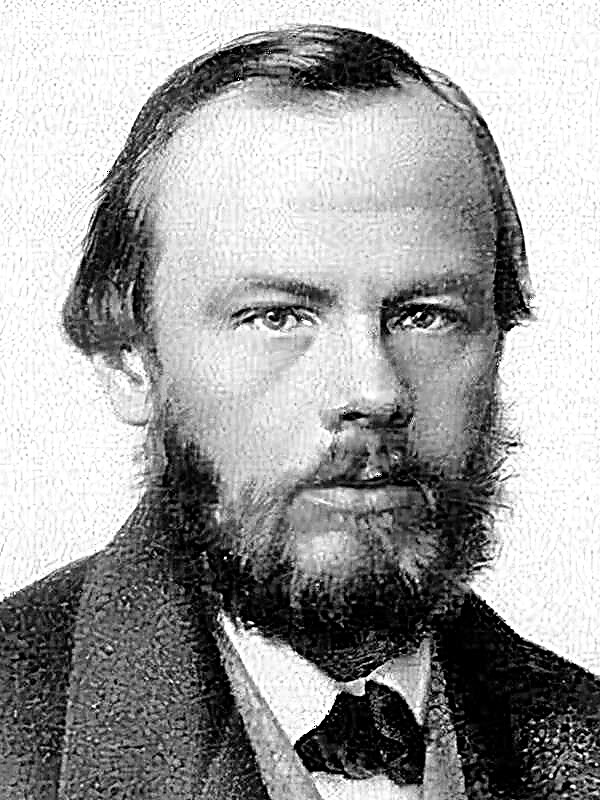
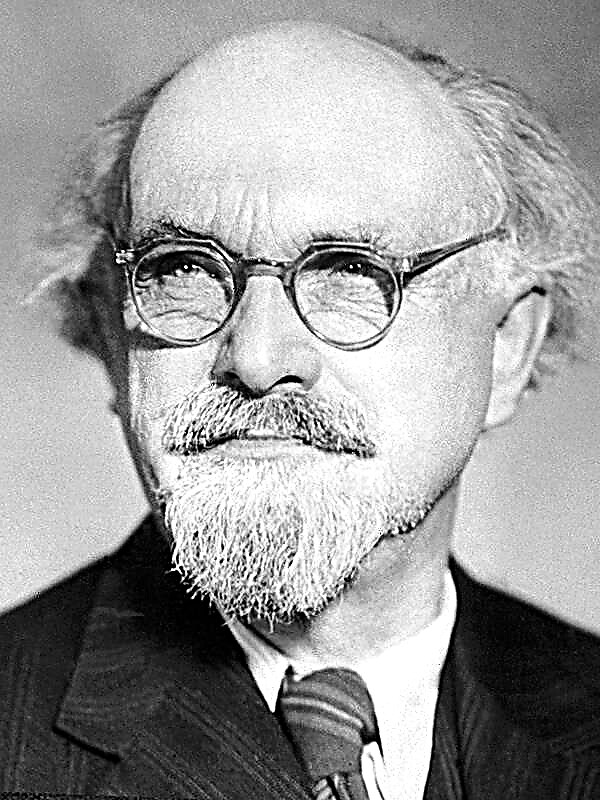
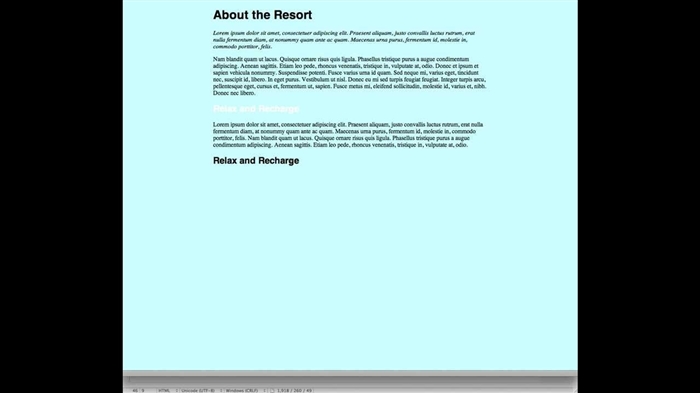 Two Ivan
Two Ivan